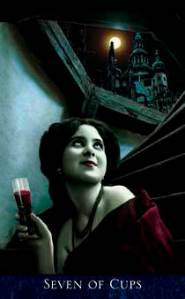reblogged and edited from my old website: Gypsyscarlett
Redbreast In the Morning
“What woke it then? A little child
Strayed from its father’s door
And in an hour of moonlight wild
Laid lonely on the desert moor.”- Emily Bronte 1837
— When Miss Bronte penned those poetic lines, perhaps she was thinking upon this ghostly tale which took place in her home town:
Haworth. February 1801-
Two-year old Joseph Helliwell snuck outside and attempted to secretly follow his father from their home at Enfieldside to Pecket Well, where the farmer had a business meeting. Tragically, Joseph could not keep up as his father made his way up the old Haworth Road. He was found frozen to death the next morning upon the Moor.
Haworth. January 27, 1849-
Four-year old Joseph Halliwell lived with his father on Far Intake Farm. One day, the little boy ventured out and became lost. Four days later, he was found frozen to death upon the same moor which had claimed his near-namesake less than fifty years before.
resource: “Strange World of The Brontes” by Marie Campbell







